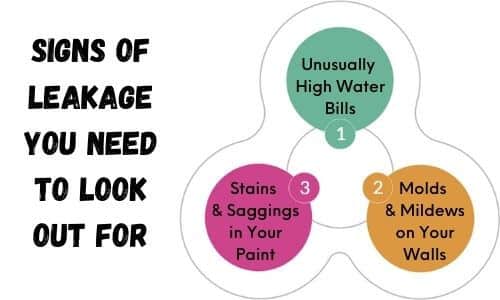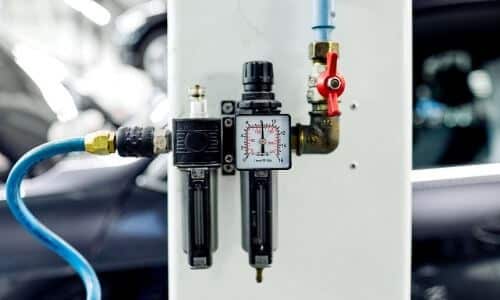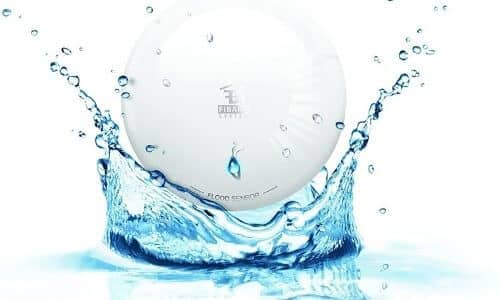Water leakage can be counted as one of the biggest nightmares for any homeowner out there. Knowing how the leak detectors work and how to stay alert before the disaster comes is a must for everyone.
Despite the repairing costs caused by the leakage, it causes further damages to your house in several ways. That’s why a leak detector in your plumbing system can save you hundreds or even thousands of bucks worth of repair costs in the future.
So let us learn how do leak detectors work and more about these compact pieces of equipment.
Why You Should Invest in a Leak Detector?
Just the installation of a single device can save you from various hassles coming in the future. Here are some of the major benefits you might want to take into consideration.

· Stop Paying Extra Water Bills
Undetected leakages cost homeowners up to thousands of dollars each year. Whatever unused water is seeping out from your line is a significant amount of water you are paying for without you having it consumed in the first place.
So, setting up a device that stops this extra sum of money from your bills is definitely a worthwhile investment in the long run.
· Take Actions to Save Your Home Planet
The amount of fresh water on our planet is limited. Climate change and global warming have been affecting every part of our world for decades.
Taking conscious steps in your usage of utilities on a daily basis is not just beneficial for your finances; instead, it is a choice that helps millions of fellow citizens in your country as well as the whole world.
· Prevent a Bigger Range of Property Damage
If leakages in your water lines remain unchecked and unrecognized, they can lead to much larger property damage. For example, the water that has been leaking out can spread into wooden accessories around the house and ruin them beyond recovery.
Similarly, concrete layers may also soak-in excess water and weaken till falling off in flakes.
· Protect the Tech Gear in Your Home
Even though there is a lot of waterproof techs out there, most of the gadgets we use are still vulnerable to water damage. So, water leakage holds a huge threat to all the electrical and electronic materials in your house. Leaking water can cause short circuits in large appliances, which might damage them permanently.
Apart from those, short circuits in the electric line can even lead to fire hazards as well, which can end up costing you a great deal of money.
Signs of Leakage You Need to Look out for
If you do not already have leak detectors set up in your plumbing system, you might want to stay alert for these signs until you have them installed.

· Unusually High Water Bills
If the number on your water bills takes a sudden jump that you did not see coming, most probably it is due to water leakage. Water that has not been used in your household but is leaking out from your line is going to raise the bills. On such occasions, be sure to do a thorough maintenance check-up of your home and utilities.
You better do it by yourself if you have a stronghold of an idea about the nooks and crannies of your home. Otherwise, do not hesitate to get help from professionals in the area; it will save you a significant amount of money in the long run.
· Molds and Mildews on Your Walls
At the primary stage, the leaking water from your pipelines can easily seep out without showing any visible signs. Eventually, the increase in humidity leads to growing molds along the wet regions. At first sight of these tiny plants, you need to take action and find out where this problem’s source is.
Moreover, we need to take them seriously, not just because it is a plumbing problem; rather, it is also a great health hazard for the people living there. They can easily trigger allergenic reactions in members of your family and loved ones.
· Stains and Saggings in Your Paint
Sometimes water leaks can be so small; it is not enough to grow molds. Still, they can be extremely deadly over a more extended period.
Although within this time, it may create stains appear from inside. It is going to keep on weakening the structure of the material it is oozing through. At more extreme points, it can make the grains of your paint and concrete fall off if they are left ignored for too long.
Types of Leak Detectors and How They Work

There are mainly three types of methods when it comes to detecting water leakage of an establishment.
- Flow Meters
- Acoustic Sensors
- Flood Detectors
1. Flow Meters

Water flow meters are probably the most efficient way to prevent leakage in your building’s plumbing system. It increases the likelihood of acquiring all the benefits stated above.
These devices are strategically placed in your pipeline to keep the flow and pressure of water in check. Whenever there is a fluctuation outside the normal range, it will alert you before the emergency, saving you from greater property damage.
Modern-day flow meters are sometimes also equipped with AI and valve control. They are able to automatically shut down lines through which excess water is leaking out. Furthermore, some of them can even be connected to your Wi-Fi. On top of that, you can control and check all the points from your smartphone.
2. Acoustic or Ultrasonic Sensors

You guessed it right; these devices can detect water leakage via sound. You might have heard of strong hissing sounds coming from large leakages yourself. However, these sensors can pick up sound from the frequency range beyond the human capability or sometimes too hard for them to catch.
As long as the leak is turbulent -i.e., the flow of the leak is uneven and not continuous at an equal rate- the ultrasonic sensor will have the ability to detect the leakage. Even if the leak happens to be at a point where we cannot see or hear with our human organ, it will easily detect that.
Ultrasonic leak detectors are most sensitive to the frequency range around 40 kHz, which is twice the frequency of the maximum range of human hearing; this is why it is very well-suited to detect internal leakage in the system.
Moreover, since ultrasound is focused on a specific band of sound, it is important to leave out outside background noise and detect the exact source of the leak.
3. Flood Detectors

These types of sensors are probably the most commonly used leak detectors in the market. Due to its low cost and ease of installation, it is sensible that it is at the top in popularity.
The devices can be set up easily in a matter of seconds. A flood sensor would trigger an alarm whenever it comes in contact with water on the floor.
Sometimes they also come with adjustable sensitivity to avoid false alarms in places with high humidity. Others may also have temperature sensors to alert the user in precautions before actual flooding.
Since these devices are available at a lower cost and are usually not set up directly in the pipeline, they have the drawback of not having any automatic valve control to stop the flow by itself.

Now You Can Relax and Stay Rest Assured
If you have reached this section of the article without skipping anything, we can hope you are fully aware of the necessity of water leak detectors. You should also be mindful of how do leak detectors work by now. So, whatever your plumbing situation might be, you have got yourself covered now.
